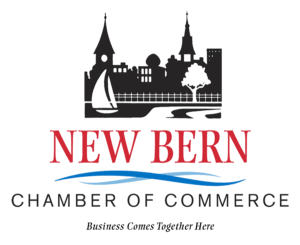You've been freelancing for a while and you're ready to take the plunge and turn your freelance work into a small business. Congratulations! Making the transition from freelancer to small business owner is a big step, but it's one that comes with a lot of rewards. Not only will you have more control over your work, but you'll also be able to reap the financial benefits that come with owning your own business.
But before you can start reaping those rewards, there are a few steps you need to take to get your business up and running. In this article, we'll walk you through everything you need to do to turn your freelance work into a small business in New Bern, North Carolina. We'll cover topics like creating a business plan, networking, marketing, and more. So if you're ready to take your freelance career to the next level, read on!
Write Up Your Business Plan
One of the first things you need to do when starting a small business is create a business plan. This document will outline your business goals, strategies, and how you plan on achieving them. Having a comprehensive business plan is essential for any successful small business, so don't skip this step!
Network as Much as Possible
Another important step in starting your small business is networking. Getting connected with other businesses in your industry can help you find clients, suppliers, and partners. It can also give you valuable insights into what's working (and what's not) in your industry.
There are lots of ways to network with other businesses in New Bern. One way is to join the New Bern Chamber of Commerce along with professional associations. These organizations often host events and mixers that are specifically designed for networking. Attend as many of these events as you can — you never know who you might meet!
Focus on Marketing
Now that you've got a handle on the basics of starting your small business, it's time to start marketing it! There are lots of ways to market your business, but which ones will work best for you will depend on your budget, target audience, and goals.
Some common marketing strategies for small businesses include online advertising, social media marketing, content marketing, and email marketing. If you're not sure where to start, consider hiring a marketing consultant or agency who can help you develop an effective marketing strategy tailored specifically for your small business.
Form Your Business Entity
There are many entities you can choose to structure your business under. Two of the most popular options for freelancers launching a full-time venture include LLCs and S corps.
The benefits of forming an LLC in North Carolina include limited liability protection for the owners, tax efficiencies, and a more professional appearance. Limited liability protection means that the owners of the LLC are not personally liable for any debts or obligations of the company. This can be important if your business is sued or goes bankrupt, as the owners' personal assets would be protected. Tax efficiencies can come in the form of reduced taxes on profits and self-employment taxes. And finally, having an LLC can make your business appear more professional to customers and partners.
Similarly, there are many tax benefits to setting up an S corp in North Carolina. For example, profits and losses can be passed through to the shareholders' individual tax returns, which can help reduce your overall tax liability. Additionally, S corps are not subject to the self-employment tax, which can save you a significant amount of money. By forming an S corp, you can enjoy a number of tax benefits that can help you grow your business.
Starting a small business is a big undertaking, but it's also an exciting one! By following the steps outlined in this article, you'll be well on your way to turning your freelance work into a successful small business in New Bern in no time.
Photo: Pexels

.jpg)
